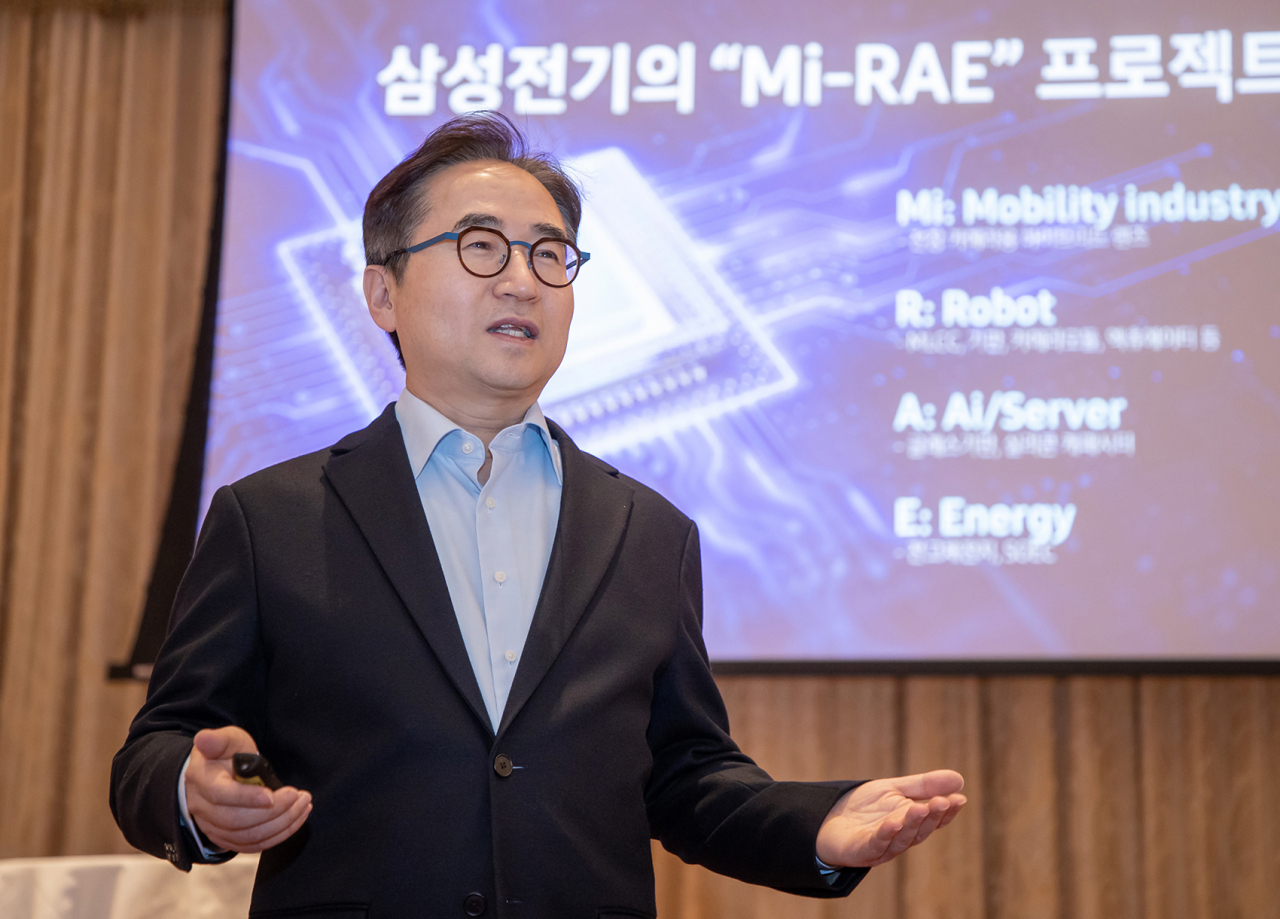[CES 2024] Samsung Electro-Mechanics CEO pins high hopes on AI
By Jie Ye-eunPublished : Jan. 11, 2024 - 16:05

LAS VEGAS -- Samsung Electro-Mechanics CEO Chang Duck-hyun unveiled the company's new vision centering on four key technology developments -- the mobility industry, robots, artificial intelligence and servers, as well as energy -- to respond to the development of future industries in advance.
"The electronics industry is expected to quickly enter an era where humanoids incorporating AI are applied to daily life and industry beyond mobile and mobility platforms," Chang said at a press conference Wednesday on the sidelines of CES 2024, which kicked off a day prior in Las Vegas.
"Parts and materials are required as bases when realizing the future technologies and it will be a new growth opportunity for Samsung Electro-Mechanics, which possesses core technologies in these fields," he added.
The electronic parts manufacturing affiliate of Samsung Electronics has been working on a project, dubbed "Mirae," which combines the four future industry sectors' first letters.
Some of its accomplishments include capacitors, glass substrates, hybrid lenses for full-length cameras, small all-solid-state batteries and solid oxide electrolytic cells, the CEO said.
The electronic parts manufacturer has set a series of goals to complete by next year as well.
In line with the fast-evolving AI market, it has set the goal of producing prototypes of glass substrates, a high-end product for high-performance semiconductors, by the following year.
After completing its goal of mass-producing silicon capacitors, an essential product for high-performance computing, the company looks to expand its lineup to servers, networks and automobiles.
It also pins hope on mass-producing hybrid lenses, a game-changer in the automotive camera market, to respond to the mobility industry's development.
Looking into entering the wearable market by 2026, it is moving a step closer to developing solid-state batteries, called "dream batteries," by replacing liquid electrolytes with solid ones.
For solid oxide electrolyzer cell technology to deliver high-efficiency, low-cost green hydrogen, Samsung looks to develop a prototype by 2025 and start mass production in 2027.
While the company considers humanoids to be the next-generation platform, new technologies utilizing optical design, precision processing and drive control technologies are also progressing.
Chang highlighted that securing core technology is the key to determining a company's survival in the coming digital future.
"Samsung Electro-Mechanics will use the coming future as a new growth opportunity and solidify our business structure to not be shaken by any recession," he said.





![[Weekender] How DDP emerged as an icon of Seoul](http://res.heraldm.com/phpwas/restmb_idxmake.php?idx=644&simg=/content/image/2024/04/25/20240425050915_0.jpg&u=)




![[Music in drama] An ode to childhood trauma](http://res.heraldm.com/phpwas/restmb_idxmake.php?idx=644&simg=/content/image/2024/04/25/20240425050929_0.jpg&u=)







![[Herald Interview] Mistakes turn into blessings in street performance, director says](http://res.heraldm.com/phpwas/restmb_idxmake.php?idx=652&simg=/content/image/2024/04/28/20240428050150_0.jpg&u=20240428174656)
